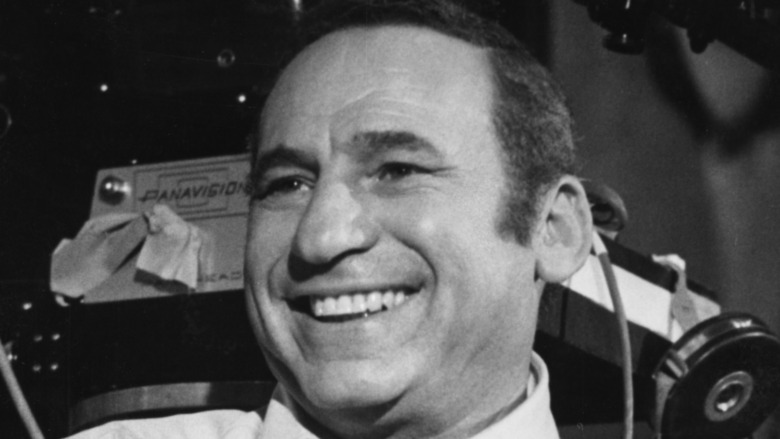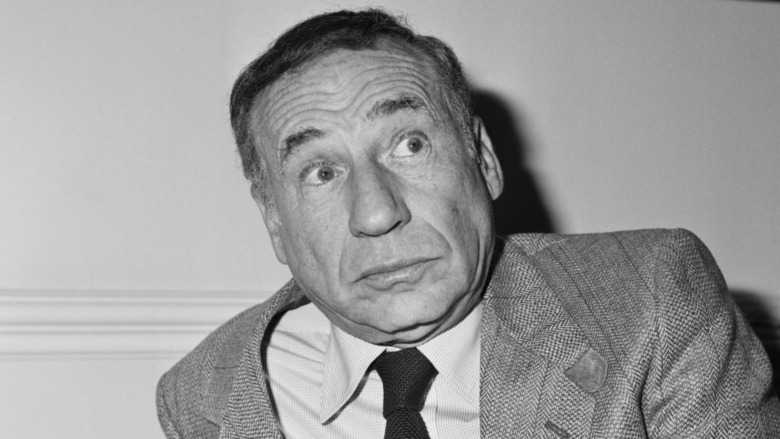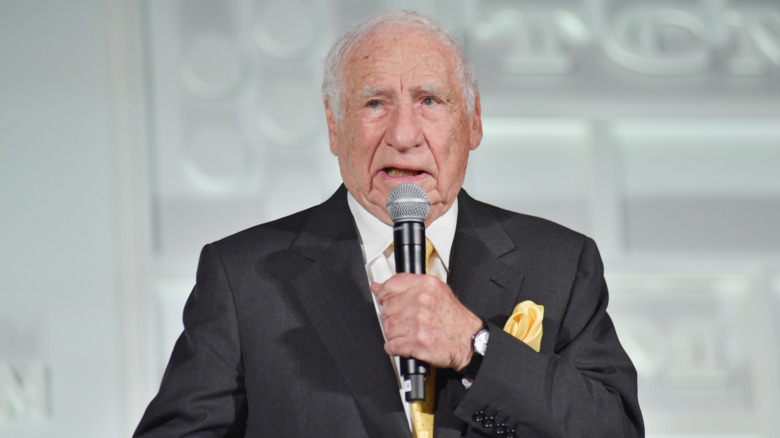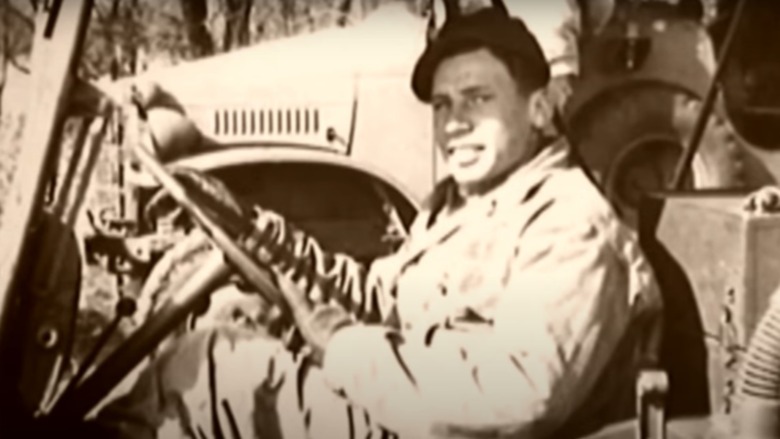The Truth About Mel Brooks' Time In World War II
Mel Brooks, the actor/director famous for such films as "Blazing Saddles" and "Young Frankenstein," among others, will go down in history as one of the great comic minds of his generation. He's that rare show business phenomenon known as an EGOT — winner of Emmy, Grammy, Oscar, and Tony awards (per Mental Floss). His films are known for comedic sight gags as well as insightful social commentary, much of it boundary-pushing for its time. In particular, Brooks drew on his own Judaism as a seemingly inexhaustible well of material for his bits.
As is often the case with comedy, however, the public face of the man masked a history of personal trauma. Brooks was born in poverty in a tough neighborhood of New York. He was a small and sickly boy who was often bullied by his peers, according to a February 1980 interview in Adelina Magazine (posted at Brookslyn). And, like tens of thousands of other men of his generation, he found a ticket out of his situation via serving in the military during World War II. Brooks' service during the war saw him scoping out land mines, being adjacent to fierce combat, and later, performing comedy for captured German POWs as well as his own colleagues back in the States.
This is the true story of Mel Brooks' time during World War II.
Brooks may or may not have seen combat at the Battle of the Bulge
Brooks, born Melvin Kaminsky in 1926, was drafted into the United States Army in 1944, according to John Wakeman's book "World Film Directors: 1945-1985." Following his training, he was assigned to the 1104th Engineer Combat Battalion, 78th Infantry Division, where he worked as a combat engineer. "Make a soldier out of the Jew boy," Brooks joked to Playboy in 1975, via The Stacks Reader. Brooks claimed that he enlisted, rather than being drafted.
According to Military.com, Brooks and his unit fought in the Battle of the Bulge, the German offensive in Belgium and Luxembourg that resulted in hundreds of thousands of casualties. However, according to the U.S. Army Corps of Engineers, Brooks wasn't near the heat of the action. Brooks himself, however, suggested to Playboy that he was in the thick of things, literally moments after arriving with his unit in Europe.
"Suddenly, all around us, Waauhwaauhwaauh! Sirens! Tiger tanks! We're surrounded by Germans. It's the Battle of the Bulge!" he said.
Brooks and his unit defused landmines
As a combat engineer, Brooks and his unit, when not dodging German artillery and mortar fire (Brooks' unit suffered heavy casualties), assembled bridges, dismantled enemy pillboxes, and cleared roads, according to the Army Corps of Engineers.
It wasn't the career the comedian had envisioned for himself. "I was a Combat Engineer. Isn't that ridiculous? The two things I hate most in the world are combat and engineering," he later joked, via Military.com. Brooks also had the task, described by the Corps of Engineers as "harrowing," of defusing enemy landmines.
Though the possibility of death was constant during those days, Brooks would later say that he was as concerned about losing his hearing as he was about dying. "Too noisy. Could not take the noise. All through the war, two cigarette butts stuck in my ears. Couldn't read, couldn't think, couldn't even make a phone call," he told Playboy, via The Stacks Reader.
Brooks entertained POWs after the war
Since World War II in Europe was winding down when Brooks was deployed there, he wound up only serving in combat for a few months before hostilities ended. However, the war ending didn't mean that the military's job was over. There was plenty of mopping up to do, so to speak, some of which involved dealing with captured enemy prisoners of war (POWs). Brooks was somehow pressed into performing for the very men who were shooting at him and his colleagues just weeks earlier. "At the end of the war, I did Army shows. First for the Germans," he told Playboy, via The Stacks Reader.
Once he left Europe, he was still compelled to perform, this time for American soldiers. Brooks explained how he and his team got laughs out of their colleagues: "At Fort Dix I did some camp shows. We all rolled up our pants and were the Andrews Sisters. One of us is still doing LaVerne in the East Village," he joked.



